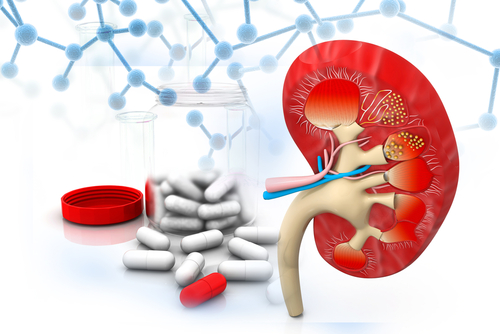FAQs About aHUS

Information about rare diseases such as atypical hemolytic uremic syndrome (aHUS) can be difficult to find, complicating the situation for both patients and caregivers.
Here are answers to some of the more frequently asked questions about aHUS to serve as a ready reference. We also include suggestions for other helpful sources of information.
What is aHUS?
aHUS is a rare genetic disease characterized by the formation of blood clots in the small blood vessels of the kidneys. aHUS can lead to multiple health problems, including hemolytic anemia (destruction of red blood cells), thrombocytopenia (low platelet count), and kidney failure.
What causes aHUS?
aHUS occurs due to a combination of genetic and environmental factors. Genetic factors alone are not enough to cause the disease.
How prevalent is aHUS?
aHUS is estimated to affect 1 in 500,000 people in the U.S., or about 900 people living there. Globally, about 20,000 people are thought to have this disease.
Who is susceptible to aHUS?
aHUS can occur in anyone irrespective of age and gender, from children to adults. Among adults, it is more common in women as it can be triggered by pregnancy.
What are the genetic factors causing aHUS?
Mutations in the genes involved in producing proteins for the body’s complement system can be a factor in developing aHUS. The complement system identifies and marks foreign invaders, like viruses and bacteria, for destruction by the immune system.
Can aHUS be inherited?
Although aHUS is a genetic disease, it is more often sporadic (mutations occurring spontaneously, with no previous family history) than inherited. However, a family history can affect a likelihood of inheriting aHUS. About 20% of all cases are thought to run in families.
What are the environmental factors that can trigger aHUS?
Environmental factors such as pregnancy, bacterial and viral infections, organ transplants, cancer, and certain medicines can act as triggers.
What are the symptoms of aHUS?
Symptoms of aHUS include nausea, shortness of breath, fatigue, anemia, thrombocytopenia, and kidney failure that can lead up to end-stage renal disease (ESRD).
Other symptoms, such as blood vessel damage, heart disease, and seizures, have been reported in some cases.
How do I know if I have aHUS?
If frequent episodes of nausea, vomiting, confusion, stomach pain, and shortness of breath are observed, a blood test is recommended.
A blood test showing a marked decrease in platelet counts, hemoglobin, and haptoglobin — along with increased levels of lactate dehydrogenase, creatinine, and blood urea nitrogen — could be indicative of aHUS.
How does genetic testing help in diagnosis?
Genetic testing for mutations in the complement genes, along with blood tests, can help to confirm aHUS. However, many instances of aHUS do not have known causes.
What are the treatment options available?
Soliris (eculizumab, by Alexion) is the most commonly recommended treatment option. Other options include plasma exchange and a liver transplant. Those with ESRD might be considered for a kidney transplant, but typically only after treatment with Soliris or plasma exchange therapies have failed.
Are there other types of hemolytic uremic syndrome apart from aHUS?
Yes. While aHUS is rare, Stx HUS is a much more common type of hemolytic uremic syndrome. Stx HUS is a distinct type of hemolytic uremic syndrome caused by Shiga toxins produced by E. coli bacteria.
Where can I get support and additional information?
We regularly publish articles covering the latest developments in aHUS news, research, and treatment options on our website. The following organizations also offer information, networking opportunities, and support for aHUS patients and their caregivers:
Last updated: August 23, 2019
***
AHUS News is strictly a news and information website about the disease. It does not provide medical advice, diagnosis, or treatment. This content is not intended to be a substitute for professional medical advice, diagnosis, or treatment. Always seek the advice of your physician or other qualified health provider with any questions you may have regarding a medical condition. Never disregard professional medical advice or delay in seeking it because of something you have read on this website.






